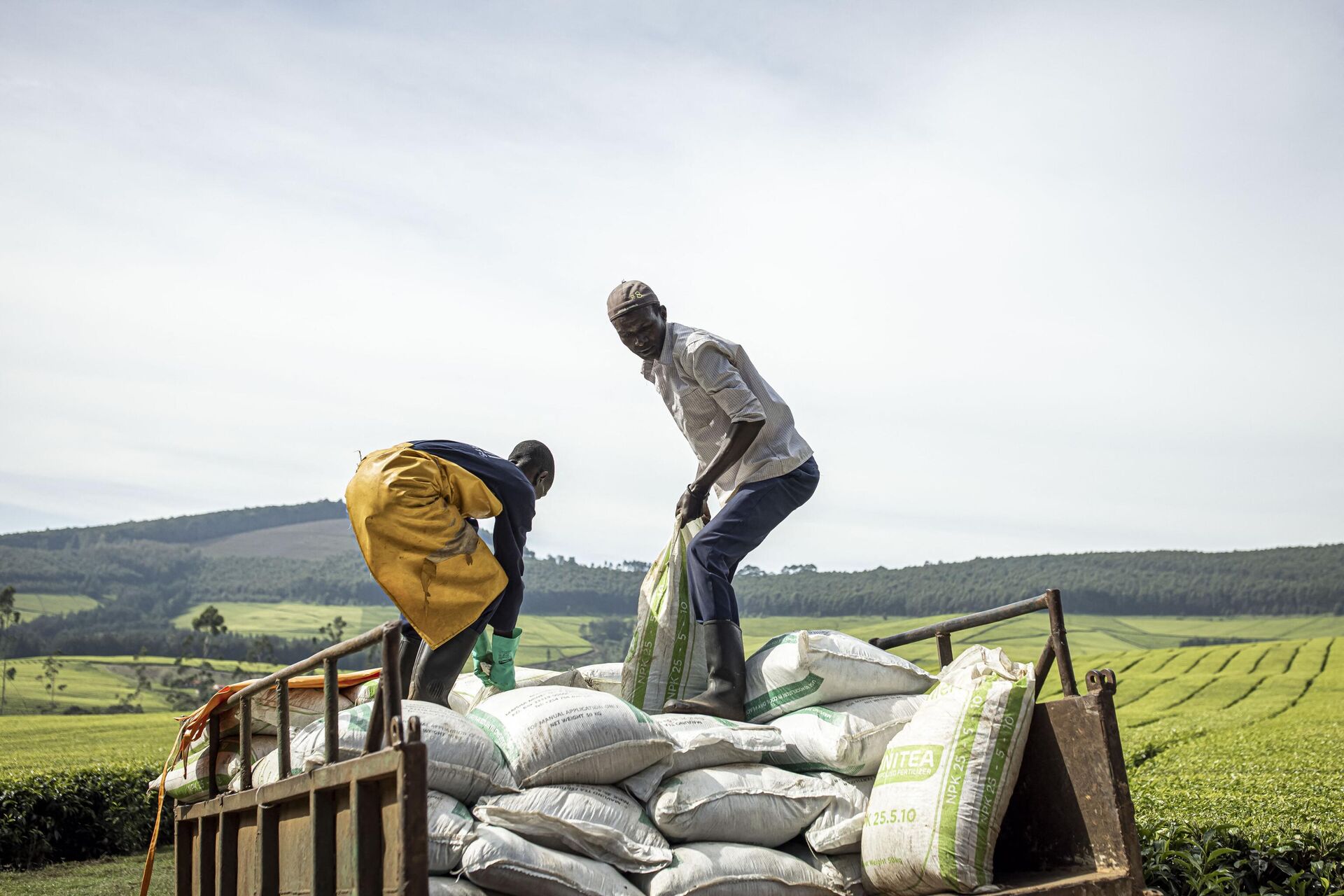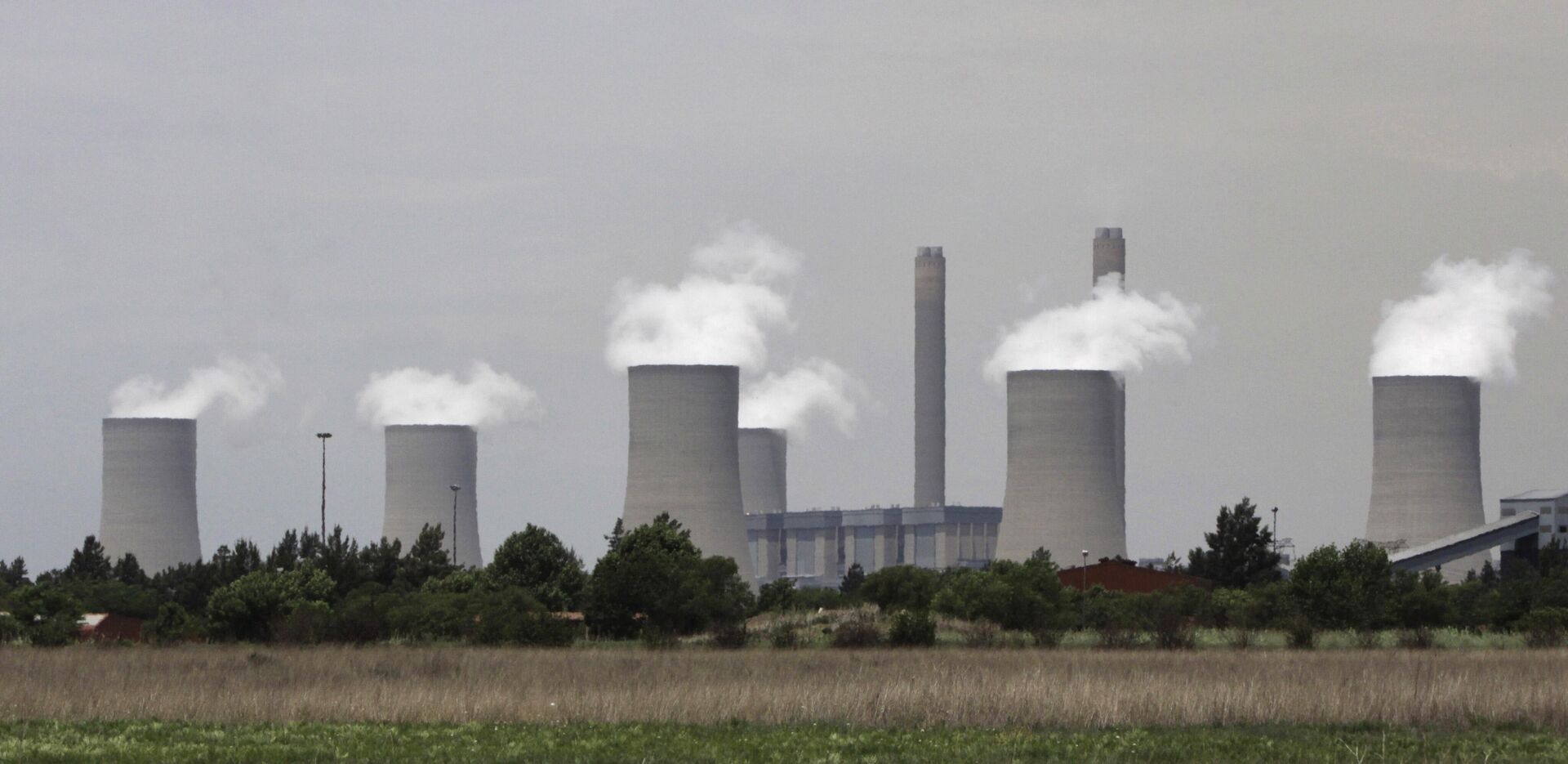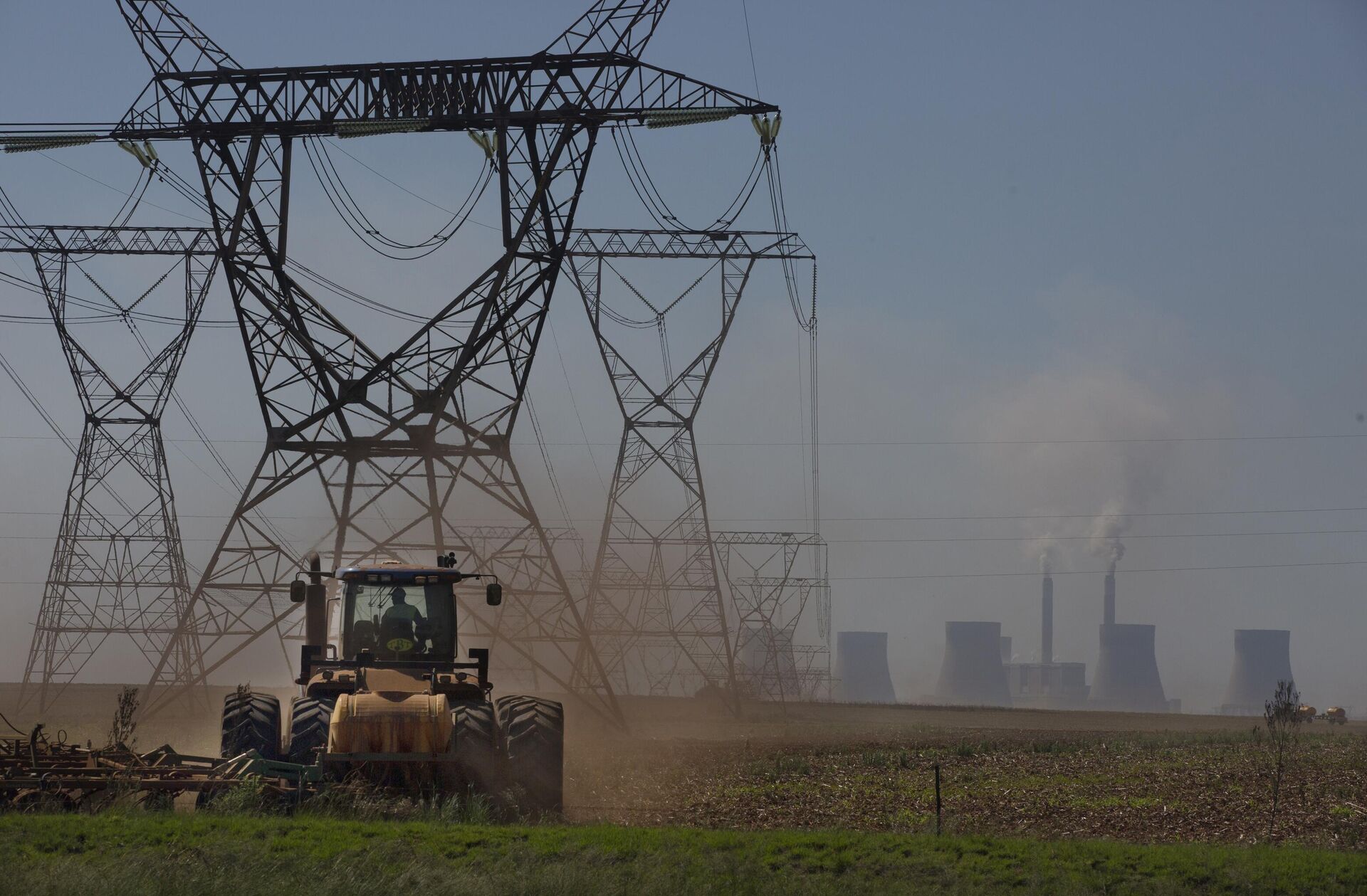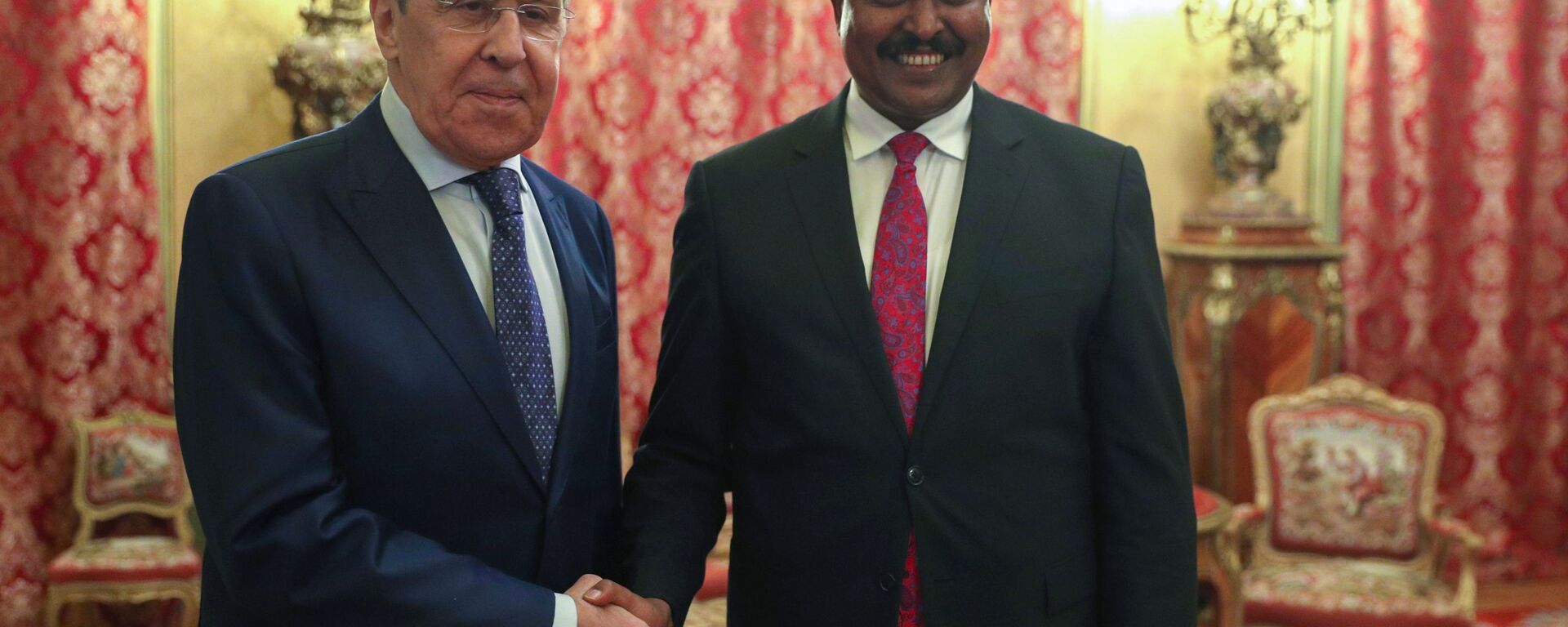https://sputnikglobe.com/20221216/africas-free-trade-area-how-to-turn-dream-of-single-continental-market-into-reality-1105525631.html
Africa's Free Trade Area: How to Turn Dream of Single Continental Market Into Reality?
Africa's Free Trade Area: How to Turn Dream of Single Continental Market Into Reality?
Sputnik International
The African Continental Free Trade Area (AfCFTA) looks to create a single continental market with a population of about 1.3 billion. The US is seeking to... 16.12.2022, Sputnik International
2022-12-16T15:45+0000
2022-12-16T15:45+0000
2022-12-16T20:21+0000
africa
russia
us
free trade
free trade agreement
joe biden
african union (au)
african continental free trade area
industrial
development
https://cdn1.img.sputnikglobe.com/img/101942/04/1019420443_0:77:2648:1567_1920x0_80_0_0_d800f06ef3e0bc7477b4203dd46ee04a.jpg
"The free trade area is expected to enhance economic integration in Africa, and it will help African countries to better trade with each other if the policies are well implemented and disseminated to all the stakeholders (…) If it works, Africa will be a big player in the global economy. [It will evolve] from [being] import dependent to a large economy that affects the world price of commodities," Bamidele Adekunle, adjunct professor at the Canadian University of Guelph, who also teaches at the Ted Rogers School of Management, Ryerson University, told Sputnik.The AfCFTA is by far the world’s largest free trade area, bringing together the 55 countries of the African Union (AU) and eight (8) Regional Economic Communities (RECs). It envisages the creation of a single market with a population of 1.3 billion and a combined GDP of about $3.4 trillion.According to the World Bank, the grand design could lift a staggering 30 million people from extreme poverty. To that end, the endeavor is believed to have the potential to boost intra-Africa trade by 52% by eliminating import duties. This figure could be bolstered further if tariffs on exports are also removed.All in all, the AfCFTA may expand the size of Africa's economy to $29 trillion by 2050, according to the proponents of the agreement.The AfCFTA entered into force on May 30, 2019, while the beginning of trading under the AfCFTA was on January 1, 2021. The project is part of the African Union's (AU) broader strategy called "Agenda 2063: The Africa We Want." Agenda 2063 is a master plan for Pan-Africanism and African Renaissance, which seeks to transform the continent into the global powerhouse of the future.To date, AfCFTA's benefits are not too relevant as the process is in its initial phase, said Sergio Rossi, professor of macroeconomics and monetary economics at the University of Fribourg, Switzerland. However, some impact has been felt.What Challenges is AfCFTA Facing?Like any other bold and ambitious project, the AfCFTA has faced challenges and setbacks. After the project came into force, the COVID-19 crisis disrupted the global economy and exposed acute healthcare problems around the world – including in developed nations – and brought the issue of supply chain vulnerability to the forefront. The post-COVID energy and food crises have exacerbated the global situation further."[The AfCFTA's] prospects are quite encouraging, even though much will depend on the situation and perspectives of the global economy, notably the North American and the European financial as well as economic situation," Rossi argued.For his part, Bamidele Adekunle has outlined four challenges in the way of the AfCFTA's implementation:First, there are gaps in transport infrastructure and problems with connectivity, according to the academic. "Railroads that were there 30-40 years have disappeared or dilapidated," he pointed out.Even though the Chinese have helped to repair some of this infrastructure, there is a problem of lack of transparency and technology transfer in the implementation of the projects, according to him. It could take three days to travel from the Gambia to Tanzania, with stops in five countries.In addition, there are literally "impassable regions" in the continent. The problem stems from either "the lack of connectivity between countries or as a result of the activities of bandits," according to the professor.Second, convertible currency and exchange rate volatility also complicate the process: "African countries should plan to transact with their countries' currency (a clearing platform should be developed) instead of using a foreign currency," argued Adekunle.Third, the professor cited "weak macro and micro economic variables": "Most francophone countries in West and Central Africa have a currency center instead of a central bank," he explained.Fourth, there is also a negotiation issue: African countries need to arrange how they can negotiate as a bloc with other parts of the world, according to the academic.On top of that, Africa trades very little internally, pointed out Suranjali Tandon, assistant professor at the Delhi-based National Institute of Public Finance and Policy. "Approximately 20% of total trade is between countries in Africa," she told Sputnik. "Therefore the first challenge will be to identify product specializations that can make intra-Africa trade mutually beneficial."Yet another complicating factor for the continent is the difference in the development of the African Union member states. For instance, while Burundi remains one of the least developed African economies, Rwanda has emerged as a tech powerhouse with the South African Republic and Kenya demonstrating promising economic growth.Under these circumstances, the trade rules' harmonization between regional economic groupings is a must, according to the observers. "This process intends to set up a level playing field between all the countries involved," Rossi elaborated.Washington: AfCFTA vs. AGOAExternal powers could potentially help African nations give a boost to the AfCFTA. At the same time, however, some observers warn that industrialized nations may try to prey on the continent's bold project.During the December US-Africa Business Summit in Washington, the Biden administration formally hailed the AfCFTA, with the White House saying that the initiative "present[s] an extraordinary opportunity for the US to invest in Africa’s future."A memorandum of understanding (MoU) inked between the US and the AfCFTA Secretariat on December 14 aimed at increasing Washington's trade with the continent, especially given that the US is still lagging behind the EU and China in this respect. While the US' trade with Africa reached $83.6 billion in 2021, this is just a fraction of what the EU's €288 billion ($306 billion) and China's $254 billion in the same year.Despite lauding the AfCFTA, the Biden administration is quietly pushing ahead with the Africa Growth and Opportunity Act's (AGOA) prolongation. The AGOA – a landmark policy of Bill Clinton – provides eligible sub-Saharan African states with duty-free access to the US market for over 1,800 products. It is set to expire in 2025.Washington's policy comes with "strings attached" as it is heavily influenced by US corporations, which are seeking better access to the African market. The policy gives Washington tools to "regulate" African nations' trade practices in favor of foreign corporations - at the expense of local producers and providers of services. Suranjali Tandon assumed that even though the US is presently hailing the AfCFTA, it could disrupt it through the AGOA in the future.For his part, Rossi warned that if Washington manages to persuade African states to extend and enhance the AGOA this could threaten African integration in the long run. The crux of the matter is that the agreement is "tying these countries' relationships with the US, instead of letting them develop their continental integration, both on economic and monetary grounds," he explained.Moreover, African countries become vulnerable to a US-based economic or financial crisis, as they could have to pay more for their imports of US inputs in such a case, the professor continued.In contrast to that, the AfCFTA agreement intends to develop inter-African commercial flows, hence reducing these countries’ dependence on the US economy, Rossi underscored.Enhancing Region-Wide Value ChainsIf Africans manage to evade Washington's traps, the AfCFTA’s development may result in the successful functioning of region-wide value chains."Region-wide value chains can help bring down the cost of production as well as develop specialization in sophisticated products," explained Tandon. "With the reduction in transport costs and tariffs, it could help improve trade balance, while also promoting local economies."Rossi added that African countries could also "reduce production costs to the extent that a number of economic activities are going to be relocated or developed within African countries."For his part, Bamidele Adekunle referred to certain challenges associated with the strategy. He argued that the development of a well-functioning value chain "needs a proper analysis of asymmetric information and its implications such as adverse selection, moral hazard, principal agent problems, and the fact that certification through the use of logos may not necessarily guarantee quality."AfCFTA Will Provide Opportunities for External PlayersWhile African countries have a long way to go before the project's implementation is completed, "a fully functional and successful AfCFTA will allow countries in Africa to expand their production capacity and compete globally with other developing countries in products that do not currently form a large portion of the trade basket," Tandon observed.At the same time, it will help reduce poverty and improve living standards and purchasing power of the African populations, echoed Rossi, projecting that the steady economic development will also lower political instability in the continent."All these factors reduce firms’ uncertainty and induce them to invest more to further support economic development across African countries over the long run," Rossi said, referring to both industrialized nations and developing countries from across the world.The professor also believes that Russia could play an important role in the process of the pan-African development strategy implementation.
https://sputnikglobe.com/20220722/lavrov-russia-africa-seek-to-reduce-share-of-dollar-euro-in-mutual-trade-1097685549.html
https://sputnikglobe.com/20190530/african-free-trade-zone-1075470562.html
https://sputnikglobe.com/20221208/state-dept-says-important-for-us-to-improve-trade-with-africa-1105176507.html
africa
russia
Sputnik International
feedback@sputniknews.com
+74956456601
MIA „Rossiya Segodnya“
2022
News
en_EN
Sputnik International
feedback@sputniknews.com
+74956456601
MIA „Rossiya Segodnya“
Sputnik International
feedback@sputniknews.com
+74956456601
MIA „Rossiya Segodnya“
african continental free trade area, industrial development, connectivity, infrastructure, competitiveness, reduction of poverty, improvement of living standards, largest free trade area, african union
african continental free trade area, industrial development, connectivity, infrastructure, competitiveness, reduction of poverty, improvement of living standards, largest free trade area, african union
Africa's Free Trade Area: How to Turn Dream of Single Continental Market Into Reality?
15:45 GMT 16.12.2022 (Updated: 20:21 GMT 16.12.2022) Longread
The African Continental Free Trade Area (AfCFTA) looks to create a single continental market with a population of about 1.3 billion. The US is seeking to capitalize on the endeavor while pushing for the extension of the Africa Growth and Opportunity Act (AGOA).
"The free trade area is
expected to enhance economic integration in Africa, and it will help African countries to better trade with each other if the policies are well implemented and disseminated to all the stakeholders (…) If it works, Africa will be a big player in the global economy. [It will evolve] from [being] import dependent to a large economy that affects the world price of commodities," Bamidele Adekunle, adjunct professor at the Canadian University of Guelph, who also teaches at the Ted Rogers School of Management, Ryerson University, told Sputnik.
The AfCFTA is by far the world’s largest free trade area, bringing together the 55 countries of the African Union (AU) and eight (8) Regional Economic Communities (RECs). It envisages the creation of a single market with a population of 1.3 billion and a combined GDP of about $3.4 trillion.
According to the World Bank, the grand design could lift a staggering 30 million people from extreme poverty. To that end, the endeavor is believed to have the potential to boost intra-Africa trade by 52% by eliminating import duties. This figure could be bolstered further if tariffs on exports are also removed.
"Practical benefits include [an] increase in intra-Africa trade, appropriate support to producers, enhanced exchange of ideas and technology, and general improvement of macro and micro-economic variables," explained Adekunle. "The benefits of AfCFTA will never be attained if there is no concerted effort on the parts of all stakeholders to ensure that a machinery is in place for trade facilitation on the continent. Examples of trade facilitation approaches include single window, one-stop border posts, harmonization of processes and procedures, automation, and publication of customs updates among others."
All in all, the AfCFTA may expand the size of Africa's economy to $29 trillion by 2050, according to the proponents of the agreement.
The AfCFTA entered into force on May 30, 2019, while the beginning of trading under the AfCFTA was on January 1, 2021. The project is part of the African Union's (AU) broader strategy called "Agenda 2063: The Africa We Want." Agenda 2063 is a master plan for Pan-Africanism and African Renaissance, which seeks to transform the continent into the global powerhouse of the future.
To date, AfCFTA's benefits are not too relevant as the process is in its initial phase, said Sergio Rossi, professor of macroeconomics and monetary economics at the University of Fribourg, Switzerland. However, some impact has been felt.
"One can already notice an increase in foreign trade for a number of African countries, since a number of trade barriers, in particular tariffs, have been much reduced, or even removed entirely, thereby spurring commercial flows between signatory countries," Rossi told Sputnik. "This has also induced an increase in foreign direct investment across the AfCFTA, hence also supporting the labor market and thereby increasing the employment level."
What Challenges is AfCFTA Facing?
Like any other bold and ambitious project, the AfCFTA has faced challenges and setbacks.
After the project came into force, the COVID-19 crisis disrupted the global economy and exposed acute healthcare problems around the world – including in developed nations – and brought the issue of supply chain vulnerability to the forefront. The post-COVID energy and food crises have exacerbated the global situation further.
"[The AfCFTA's] prospects are quite encouraging, even though much will depend on the situation and perspectives of the global economy, notably the North American and the European financial as well as economic situation," Rossi argued.
"Two major problems exist to date: the lack of an orderly working payments system for the settlement of international transactions, which must be based on a truly international means of final payment instead of a national one like the US dollar, and the rather low speed in setting up [projects] such as AfCFTA, because of conflicting interests over the short run that its member countries have. Further, the pandemic crisis and the food crisis induced by the current geopolitical tensions in Europe weigh on African countries negatively," the professor continued.
For his part, Bamidele Adekunle has outlined four challenges in the way of the AfCFTA's implementation:
First, there are gaps in transport infrastructure and problems with connectivity, according to the academic. "Railroads that were there 30-40 years have disappeared or dilapidated," he pointed out.
Even though the Chinese have helped to repair some of this infrastructure, there is a problem of lack of transparency and technology transfer in the implementation of the projects, according to him. It could take three days to travel from the Gambia to Tanzania, with stops in five countries.
In addition, there are literally "impassable regions" in the continent. The problem stems from either "the lack of connectivity between countries or as a result of the activities of bandits," according to the professor.
Second, convertible currency and exchange rate volatility also complicate the process: "African countries should plan to transact with their countries' currency (a clearing platform should be developed) instead of using a foreign currency," argued Adekunle.
Third, the professor cited "weak macro and micro economic variables": "Most francophone countries in West and Central Africa have a currency center instead of a central bank," he explained.
Fourth, there is also a negotiation issue: African countries need to arrange how they can negotiate as a bloc with other parts of the world, according to the academic.
On top of that, Africa trades very little internally, pointed out Suranjali Tandon, assistant professor at the Delhi-based National Institute of Public Finance and Policy. "Approximately 20% of total trade is between countries in Africa," she told Sputnik. "Therefore the first challenge will be to identify product specializations that can make intra-Africa trade mutually beneficial."
Yet another complicating factor for the continent is the difference in the development of the African Union member states. For instance, while Burundi remains one of the least developed African economies, Rwanda has emerged as a tech powerhouse with the South African Republic and Kenya demonstrating promising economic growth.
Under these circumstances, the trade rules' harmonization between regional economic groupings is a must, according to the observers. "This process intends to set up a level playing field between all the countries involved," Rossi elaborated.
Washington: AfCFTA vs. AGOA
External powers could potentially help African nations give a boost to the AfCFTA. At the same time, however, some observers warn that industrialized nations may try to prey on the continent's bold project.
During the December US-Africa Business Summit in Washington, the Biden administration formally hailed the AfCFTA, with the White House saying that the initiative "present[s] an extraordinary opportunity for the US to invest in Africa’s future."
A memorandum of understanding (MoU) inked between the US and the AfCFTA Secretariat on December 14 aimed at increasing Washington's trade with the continent, especially given that the US is still lagging behind the EU and China in this respect. While the US' trade with Africa reached $83.6 billion in 2021, this is just a fraction of what the EU's €288 billion ($306 billion) and China's $254 billion in the same year.
"The US fears to lose its 'soft power' as regards monetary and financial domination in the global economy, where to date the US dollar is the major reference currency and in so doing it allows the US economy to obtain a number of short-run benefits, such as the possibility to steer its interest rate policy independently of what occurs abroad, and also the attraction of a relevant volume of foreign capital both as a tax haven and for foreign direct investment," said Rossi.
Despite lauding the AfCFTA, the Biden administration is quietly pushing ahead with the Africa Growth and Opportunity Act's (AGOA) prolongation. The AGOA – a landmark policy of Bill Clinton – provides eligible sub-Saharan African states with duty-free access to the US market for over 1,800 products. It is set to expire in 2025.
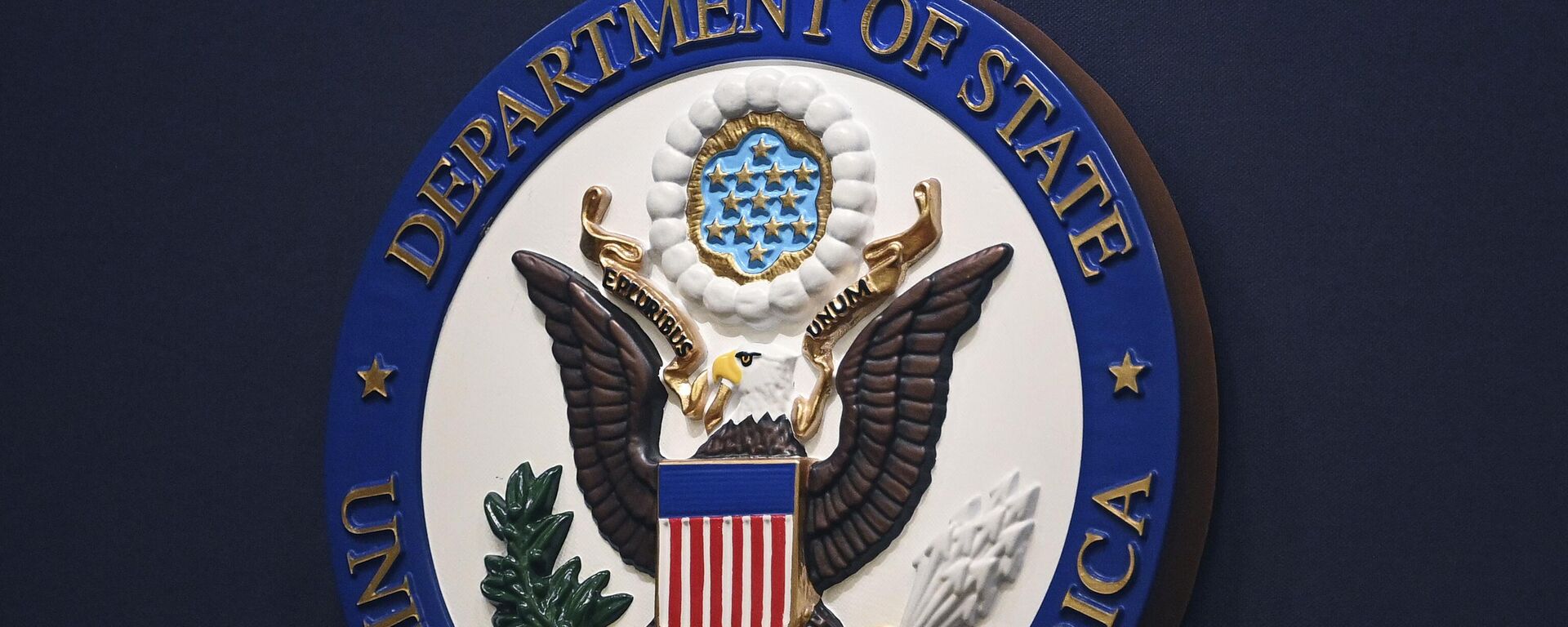
8 December 2022, 06:31 GMT
Washington's policy comes with "strings attached" as it is heavily influenced by US corporations, which are seeking better access to the African market. The policy gives Washington tools to "regulate" African nations' trade practices in favor of foreign corporations - at the expense of local producers and providers of services. Suranjali Tandon assumed that even though the US is presently hailing the AfCFTA, it could disrupt it through the AGOA in the future.
For his part, Rossi warned that if Washington manages to persuade African states to extend and enhance the AGOA this could threaten African integration in the long run. The crux of the matter is that the agreement is "tying these countries' relationships with the US, instead of letting them develop their continental integration, both on economic and monetary grounds," he explained.
"African countries are actually competing against each other, to obtain the necessary US inputs, instead of collaborating to set up a properly working economic system independent of the US economy as regards production, trade as well as banking activities," Rossi pointed out. "This African dependency on the US economy puts these countries in a situation where they must comply with the AGOA rules to avoid expulsion. Their room for maneuver is thereby much reduced on both economic and political grounds."
Moreover, African countries become vulnerable to a US-based economic or financial crisis, as they could have to pay more for their imports of US inputs in such a case, the professor continued.
In contrast to that, the AfCFTA agreement intends to develop inter-African commercial flows, hence reducing these countries’ dependence on the US economy, Rossi underscored.
Enhancing Region-Wide Value Chains
If Africans
manage to evade Washington's traps, the AfCFTA’s development may result in the successful functioning of region-wide value chains.
"Region-wide value chains can help bring down the cost of production as well as develop specialization in sophisticated products," explained Tandon. "With the reduction in transport costs and tariffs, it could help improve trade balance, while also promoting local economies."
Rossi added that African countries could also "reduce production costs to the extent that a number of economic activities are going to be relocated or developed within African countries."
"Last but not least, they contribute to reducing the negative impacts of foreign trade on climate, since foreign trade across the African continent implies shorter distances than it is the case to date in international commercial transactions," he emphasized.
For his part, Bamidele Adekunle referred to certain challenges associated with the strategy. He argued that the development of a well-functioning value chain "needs a proper analysis of asymmetric information and its implications such as adverse selection, moral hazard, principal agent problems, and the fact that certification through the use of logos may not necessarily guarantee quality."
"To strengthen the value chain there is a need to understand the impact of intellectual property rights - copyrights, patents, trademarks and geographical indications," Adekunle continued. "Why is it that African countries cannot produce generic drugs (HIV medications and COVID-19 vaccines)? HIV medication became affordable in Uganda after Cipla (a generic drug producer from India) was established in Kampala. What is AfCFTA doing about securing geographical indication status for indigenous food and medication from Africa?"
AfCFTA Will Provide Opportunities for External Players
While African countries have a long way to go before the project's implementation is completed, "a fully functional and successful AfCFTA will allow countries in Africa to expand their production capacity and compete globally with other developing countries in products that do not currently form a large portion of the trade basket," Tandon observed.
At the same time, it will help reduce poverty and improve living standards and purchasing power of the African populations, echoed Rossi, projecting that the steady economic development will also lower political instability in the continent.
"All these factors reduce firms’ uncertainty and induce them to invest more
to further support economic development across African countries over the long run," Rossi said, referring to both industrialized nations and developing countries from across the world.
The professor also believes that Russia could play an important role in the process of the pan-African development strategy implementation.
"It certainly creates a number of business opportunities for Russian firms and financial institutions, particularly as regards manufacturing and service-oriented firms that want to take into account the needs of African stakeholders, be they individuals or businesses that contribute to make the world economy multipolar and more resilient to geopolitical crises," Rossi concluded.

